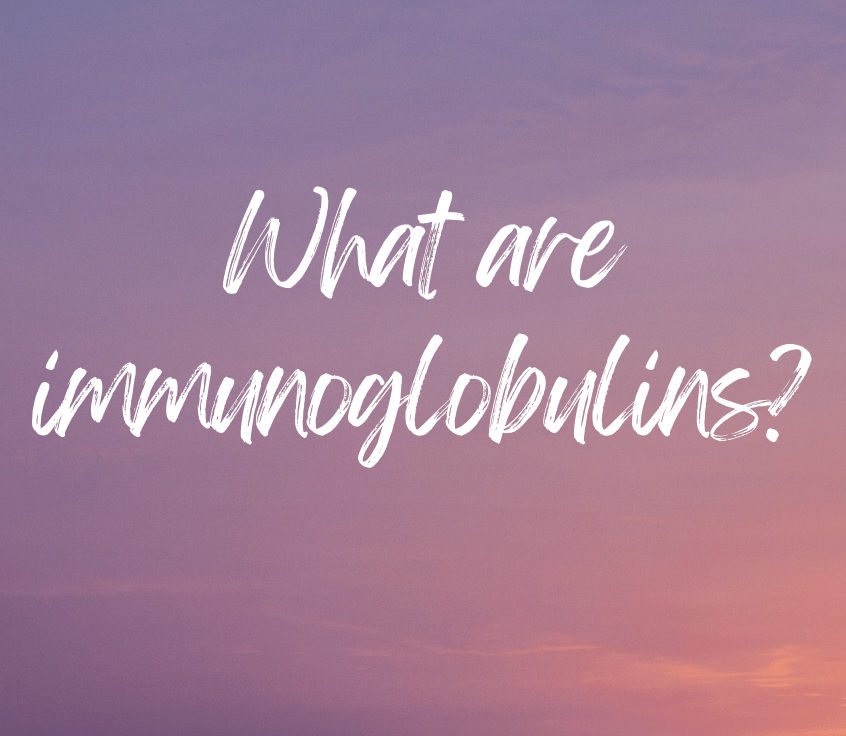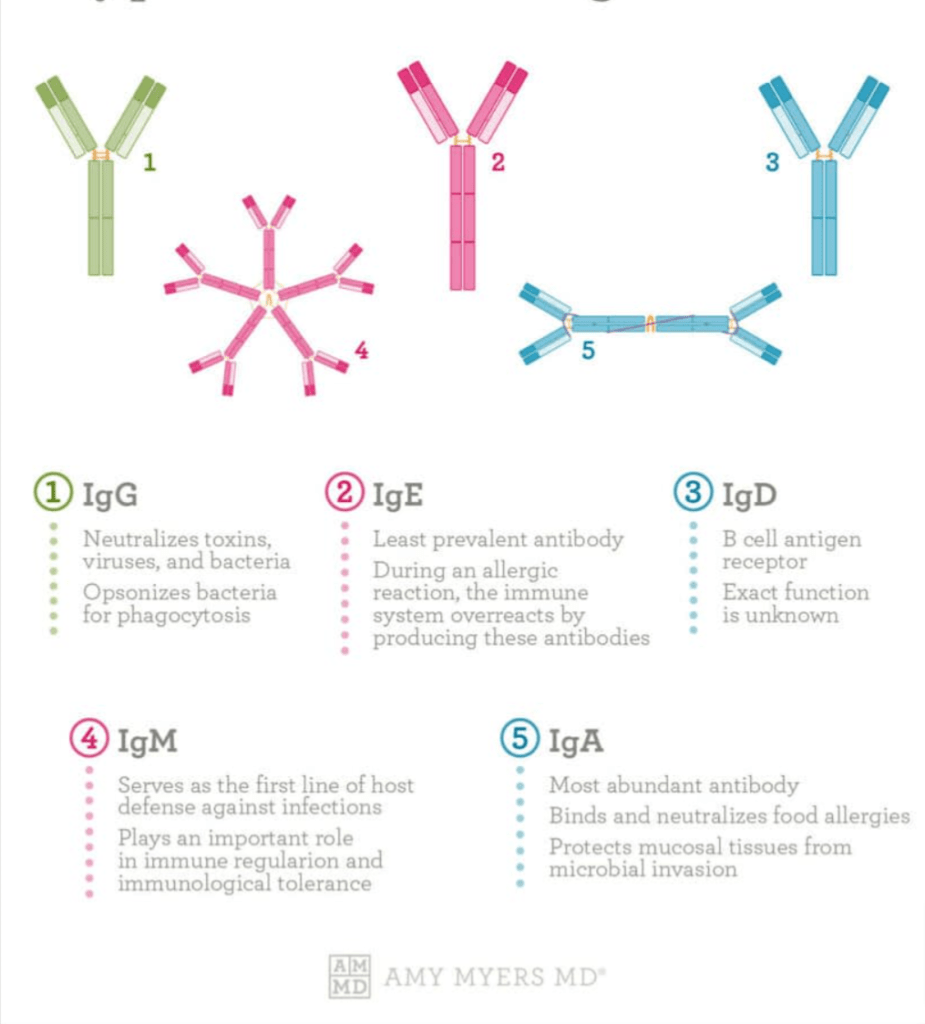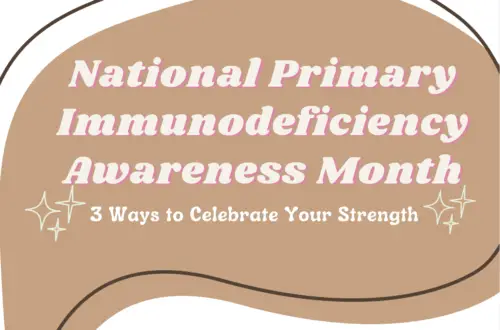
What are immunoglobulins? How they relate to CVID
Table of Contents
The definition of immunoglobulins
According to the National Cancer Institute, immunoglobulins are “a protein that is made by B cells and plasma cells (types of white blood cells) and helps the body fight infection.” They can also be called antibodies, which may be a more well-known term. Immunoglobulins can vary in their structure, and there are five major classes (IgG, IgA, IgM, IgD and IgE). These different types of Ig serve different functions in the immune system.
I found this visual from Amy Meyers MD which really helps explain what the different types of immunoglobulins do:

What is the relation between immunoglobulins and CVID?
Those who are diagnosed with CVID have low immunoglobulin counts in their blood, and this is a way that patients are initially diagnosed.
Before my diagnosis, I had very little knowledge of immunoglobulins or any diseases related to low Ig counts. I went to see an immunologist for the first time because I was trying to get to the root of my constant illness, so the doctor ordered some labs for me to get my blood drawn. I don’t like to freak myself out, so I am not super keen on looking at what specifically the blood draw is testing for.
When I received the phone call from my immunologist, everything was really new to me. But, I did know that the lack of immunoglobulins in my blood showed that my immune system was not functioning properly, and thus my body was not correctly creating antibodies on its own.
Because immunoglobulins help the body fight infection, a lack of them will cause the body to be more susceptible to illness and infections. If I continued without treatment, an illness like pneumonia or bronchitis could have critical affects on my body.
That is why many CVID patients must receive immunoglobulin replacement therapy. This treatment can be administered either through IV or subcutaneous tissue. While antibodies can be supplied for the body to use, they metabolize over a period of time which means that they must be continually replaced.
I infuse subcutaneously, which allows me to do my treatments at home and insert needles into the fatty areas of my body. I do it every two weeks, but the timing varies per person based on immunoglobulin levels.
We use donated blood plasma for immunoglobulin replacement therapy because it contains the necessary antibodies that we are missing. According to the Immune Deficiency Foundation, the “Ig used for treatment contains 95- 98% pure IgG with only small amounts of other plasma proteins including some IgA and IgM.”
IgG is important for fighting infections from bacteria and viruses, and they create a blueprint for fighting off certain germs, which can allow for the antibodies to fight more quickly when exposed to the same illness multiple times.
This plasma treatment was first used to help patients in 1952, but the treatment was administered in small doses in painful shots. It was only available to be administered intravenously in the early 1980s.
It’s so important for people to donate plasma since that is the resource for the necessary immunoglobulins that so many patients are missing. You can read more about donating plasma here.

Making sense of it all
When you have a chronic illness, it can be hard to understand all of the concepts and definitions. I have had CVID for four years now, and I am still learning.
Understanding what is happening in your body is important, even if it freaks you out a little bit. As I started this website and researched more about my disease, I learned so much and gained an overall understanding of my disease.
Don’t be afraid to ask your doctor for more clarification, especially after a new blood test or other procedures. They have vast knowledge and understanding that can be hard to grasp, especially if you are grappling with a new diagnosis.
The body is a complicated vessel, but it’s amazing that with modern medicine we can learn so much about how we function!
Read more about immunoglobulins
What are the 5 types of antibodies?

More from Aubrey Grace






2 Comments
Marysa
I had heard about this type of therapy, but hadn’t thought it through this thoroughly. Very interesting to learn some more things about CVID and the immune system.
Tom
Great article! You made it easy to understand.